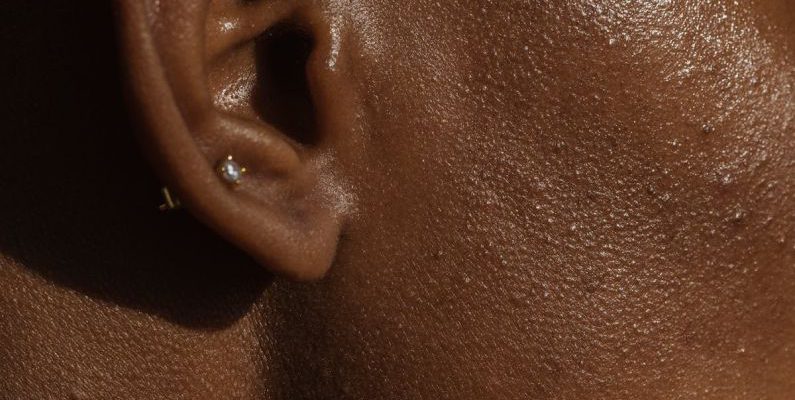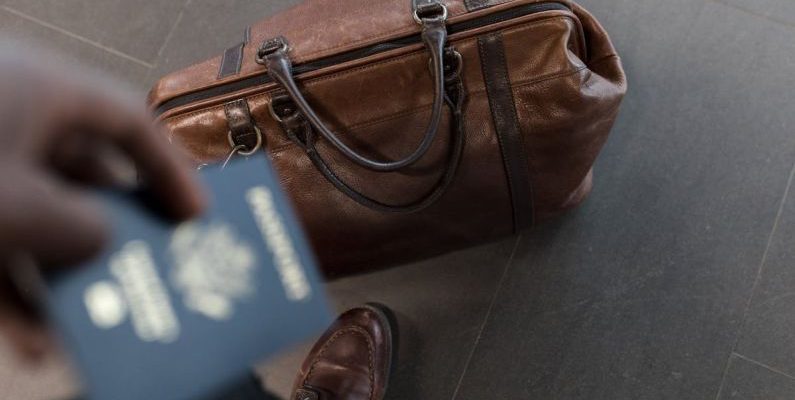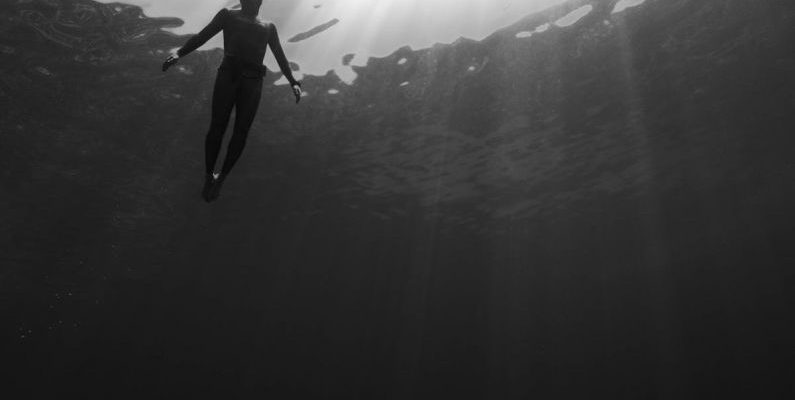Planning for a dive vacation can be an exciting time as you prepare to explore the wonders of the underwater world. However, packing efficiently for such an adventure is crucial to ensure you have everything you need while keeping your luggage light and manageable. By following these tips and tricks, you can streamline your packing process and make the most of your dive vacation without any unnecessary stress.
Travel Essentials
Scuba diving is a thrilling and captivating activity that allows divers to explore the mesmerizing underwater world. However, as with any sport, diving comes with its risks and challenges, particularly when it comes to ear problems. Preventing and treating ear issues while diving is crucial to ensuring a safe and enjoyable experience underwater.
Understanding the Ear
Before delving into how to prevent and treat ear problems while diving, it is essential to understand the basic anatomy of the ear and how it functions. The ear is a complex organ that consists of three main parts: the outer ear, middle ear, and inner ear. The outer ear collects sound waves and channels them into the ear canal, where they reach the eardrum in the middle ear. The middle ear contains the ossicles, which transmit sound vibrations to the inner ear. The inner ear is responsible for processing these vibrations into electrical signals that are sent to the brain for interpretation.Equalizing Pressure
One of the most common ear problems experienced by divers is barotrauma, which occurs when there is a difference in pressure between the middle ear and the surrounding environment. This pressure difference can cause discomfort, pain, and even injury to the eardrum. To prevent barotrauma, divers must equalize the pressure in their ears regularly while descending and ascending. Equalizing the pressure in the ears can be achieved by performing the Valsalva maneuver, which involves gently blowing air through the nose while pinching the nostrils closed. This maneuver helps to open the Eustachian tubes, which connect the middle ear to the back of the throat, allowing air to flow in and out of the middle ear and equalizing the pressure.Ear Protection
In addition to equalizing pressure, divers can prevent ear problems by protecting their ears from irritants and contaminants in the water. Wearing earplugs or a hood can help to keep water out of the ears and reduce the risk of developing infections or inflammation. It is crucial to ensure that ear protection gear fits properly and is comfortable to wear for extended periods underwater.Seeking Medical Attention
Despite taking preventive measures, ear problems can still occur while diving. If a diver experiences persistent pain, discomfort, or hearing loss in the ears, it is essential to seek medical attention immediately. Ignoring ear problems can lead to complications and potentially permanent damage to the ears.Treatment Options
When it comes to treating ear problems while diving, there are several options available depending on the specific issue. For minor ear pain or discomfort, divers can try using over-the-counter ear drops to alleviate symptoms. These drops can help to reduce inflammation, relieve pain, and promote healing in the ears. In cases of more severe ear problems such as barotrauma or ear infections, divers may require medical intervention from an otolaryngologist or ear, nose, and throat specialist. Treatment options may include antibiotics, ear tube placement, or other surgical procedures to repair damaged ear structures.Preventive Measures
Prevention is always better than cure when it comes to ear problems while diving. Divers can take several precautions to minimize the risk of developing ear issues during their dives. These include:- Ensuring proper equalization techniques are employed during descent and ascent
- Using appropriate ear protection gear such as earplugs or hoods
- Avoiding diving with congested sinuses or allergies that can affect the Eustachian tubes- Seeking medical clearance from a physician before engaging in diving activities
Conclusion: Ensuring Ear Health for Safe Diving
Maintaining ear health is crucial for safe and enjoyable diving experiences. By understanding the anatomy of the ear, practicing proper equalization techniques, using ear protection gear, and seeking medical attention when needed, divers can prevent and treat ear problems effectively. Remember, healthy ears are essential for exploring the wonders of the underwater world without any discomfort or hindrance.
When planning a dive trip, there are numerous factors to consider to ensure a safe and enjoyable experience. One critical aspect that often gets overlooked is the weather conditions at the dive destination. Weather plays a significant role in diving safety and can greatly impact your overall dive experience. From visibility to currents and marine life sightings, understanding and considering the weather conditions before embarking on a dive trip is essential for all divers.
Choosing the Right Season
Selecting the right season for your dive travel is crucial to ensure optimal diving conditions. Different locations have varying weather patterns throughout the year, affecting water temperature, visibility, and marine life activity. Researching the best time to visit a particular dive destination can make a significant difference in the quality of your diving experience. For instance, some destinations have a rainy season that may reduce visibility or create unsafe diving conditions. Planning your trip during the dry season can help you avoid these weather-related challenges and enjoy better diving conditions.Monitoring Weather Patterns
Before your dive trip, it is essential to monitor weather patterns at your destination. Checking the local weather forecast, wind conditions, and sea surface temperatures can give you valuable insights into what to expect during your dives. Sudden changes in weather can impact sea conditions, causing strong currents or rough seas, which may pose risks to divers. By staying informed about the weather conditions, you can plan your dives accordingly and make informed decisions to ensure your safety underwater.Visibility and Water Temperature
Weather conditions directly influence water visibility and temperature, two crucial factors that can affect the quality of your dives. Rainfall, wind, and ocean currents can impact visibility by stirring up sediment and reducing the clarity of the water. Similarly, water temperature can vary depending on the weather, with colder temperatures affecting marine life behavior and divers' comfort levels. Understanding how weather conditions influence visibility and water temperature can help you prepare for your dives and choose the right gear to ensure a comfortable and enjoyable experience underwater.Safety Considerations
Weather conditions play a significant role in diving safety, and being aware of potential risks is essential for all divers. Strong winds, rough seas, and thunderstorms can create hazardous conditions for diving, increasing the likelihood of accidents or injuries. It is important to prioritize safety and avoid diving in adverse weather conditions, even if it means rescheduling or canceling your dives. By staying vigilant and monitoring weather updates, you can make informed decisions to protect yourself and your dive buddies while exploring the underwater world.Adapting to Changing Conditions
Weather conditions can be unpredictable, and divers must be prepared to adapt to changing circumstances during their dive trips. If weather conditions deteriorate unexpectedly, it is essential to have a backup plan or alternative dive sites to ensure a safe and enjoyable experience. Flexibility is key when dealing with changing weather conditions, and being prepared to modify your dive itinerary can help you make the most of your trip while staying safe underwater.Conclusion: Planning Ahead for a Successful Dive Trip
In conclusion, considering weather conditions is essential for dive travel planning to ensure a safe and rewarding experience. By choosing the right season, monitoring weather patterns, and understanding how weather influences visibility and water temperature, divers can make informed decisions to optimize their dive trips. Prioritizing safety, adapting to changing conditions, and staying informed about weather updates are crucial steps in planning a successful dive adventure. Remember, weather conditions may vary, but with careful planning and preparation, you can enjoy unforgettable dives in some of the world's most spectacular underwater environments.
Traveling with your dive gear can be both exciting and daunting. Whether you're heading to a tropical paradise or a remote dive site, ensuring that your equipment stays safe during transit is crucial. From fragile regulators to bulky wetsuits, your gear needs to be protected from mishandling, rough handling, and potential damage. Here are some tips to help you keep your dive gear safe and secure throughout your travels.
Pack Strategically
When it comes to packing your dive gear for travel, organization is key. Make a checklist of all the items you need to bring and lay them out before packing. Ensure that delicate items such as dive computers, regulators, and cameras are wrapped in soft cloth or stored in protective cases to prevent scratches and damage. Utilize the space in your luggage efficiently by placing smaller items inside larger ones, like storing your mask and snorkel inside your fins.Protective Cases and Bags
Investing in quality protective cases and bags for your dive gear can make a world of difference in keeping your equipment safe during travel. Hard-shell cases designed specifically for dive gear are ideal for protecting fragile items such as regulators and dive computers. Waterproof bags are also essential for storing wet gear like wetsuits, booties, and gloves to prevent leaks and keep the rest of your luggage dry.Secure Your Gear
To prevent your dive gear from shifting around and getting damaged during transit, secure everything in your luggage properly. Use adjustable straps or packing cubes to keep your gear in place and avoid unnecessary movement. It's also a good idea to pad your gear with soft clothing or towels to provide extra cushioning and protection.Check Airline Regulations
Before you travel, familiarize yourself with the airline's regulations regarding carrying dive gear. Some airlines have specific rules and restrictions when it comes to transporting scuba equipment, such as weight limits or additional fees for oversized items. Plan ahead and pack accordingly to avoid any surprises or extra charges at the airport.Carry-On Essentials
While most of your dive gear will likely be checked luggage, it's wise to pack essential items in your carry-on bag. This includes sensitive equipment like dive computers, cameras, and any medications you may need for diving. By keeping these items with you during the flight, you can ensure that they are not lost or damaged in transit.Inspect Your Gear
Before and after each trip, take the time to inspect your dive gear for any signs of damage or wear. Check for leaks in your regulators, tears in your wetsuit, and any corrosion on metal parts. Address any issues promptly to prevent further damage and ensure that your gear is in top condition for your next dive.Wrap Up
Safely transporting your dive gear during travel requires careful planning and attention to detail. By packing strategically, investing in protective cases, securing your gear, checking airline regulations, carrying essential items in your carry-on, and inspecting your gear regularly, you can keep your equipment safe and secure on your diving adventures. Remember, proper care and maintenance of your dive gear will not only prolong its lifespan but also enhance your diving experience. So, pack smart, dive safe, and enjoy exploring the underwater world with peace of mind.
Jet lag can be a common issue for travelers, especially when embarking on dive trips that involve crossing multiple time zones. The disruption of your body's internal clock can leave you feeling fatigued, disoriented, and impact your overall diving experience. However, with some strategic planning and mindful practices, you can effectively manage jet lag and make the most of your underwater adventures. Here are some essential tips to help you combat jet lag on dive trips.
Plan Ahead for Smooth Transitions
One of the best ways to minimize the impact of jet lag on your dive trip is to plan ahead and gradually adjust your sleep schedule to align with your destination's time zone. A few days before your trip, start going to bed and waking up a bit earlier or later, depending on the direction of travel. This can help your body adapt more smoothly to the new time zone and reduce the severity of jet lag symptoms upon arrival.Stay Hydrated and Nourished
Proper hydration and nutrition play a crucial role in combating jet lag and keeping your energy levels up during your dive trip. Dehydration can exacerbate the symptoms of jet lag, so make sure to drink plenty of water before, during, and after your flight. Avoid excessive caffeine and alcohol consumption, as they can disrupt your sleep patterns and worsen jet lag symptoms. Opt for light, nutritious meals that are rich in lean proteins, fruits, and vegetables to support your body's energy levels and overall well-being.Get Moving and Soak Up Some Sunlight
Physical activity and exposure to natural light can help regulate your body's internal clock and alleviate the effects of jet lag. Try to engage in some light exercise, such as stretching, walking, or yoga, upon arrival at your destination to boost circulation and combat fatigue. Spending time outdoors and soaking up sunlight can also help reset your circadian rhythm and promote a sense of alertness and well-being. If possible, schedule some outdoor activities or beach walks to take advantage of the natural light and fresh air.Practice Relaxation Techniques
Stress and anxiety can worsen the symptoms of jet lag and impact your ability to enjoy your dive trip to the fullest. Incorporating relaxation techniques, such as deep breathing, meditation, or progressive muscle relaxation, can help calm your mind and body, promote restful sleep, and reduce the effects of jet lag. Consider packing a travel-sized meditation cushion or essential oils to create a soothing environment in your hotel room or dive boat.Establish a Sleep-Friendly Environment
Creating a sleep-friendly environment is essential for overcoming jet lag and ensuring restful nights during your dive trip. Pack a comfortable eye mask, earplugs, and travel pillow to block out distractions and promote deep, uninterrupted sleep. Adjust the room temperature to a cool, comfortable level and minimize exposure to artificial light sources, such as smartphones and laptops, before bedtime. Investing in a quality mattress and bedding can also enhance your sleep quality and overall comfort during your dive trip.Stay Flexible and Listen to Your Body
Despite your best efforts to manage jet lag, it's important to stay flexible and listen to your body's cues throughout your dive trip. Allow yourself some time to rest and recharge between dives, especially during the first few days after arrival, to prevent exhaustion and burnout. Be mindful of any signs of fatigue, dehydration, or discomfort and adjust your diving schedule or activities accordingly. Prioritize self-care and relaxation to make the most of your underwater adventures and create lasting memories on your dive trip. Incorporate these essential tips into your travel routine to effectively manage jet lag and optimize your diving experience on your next dive trip. By planning ahead, staying hydrated, engaging in physical activity, practicing relaxation techniques, creating a sleep-friendly environment, and listening to your body's needs, you can overcome jet lag and make the most of your underwater adventures. Embrace the journey, adapt to new surroundings, and savor every moment of your dive trip with a refreshed and energized spirit.
Embarking on a diving adventure is an exhilarating experience, but ensuring you have the right gear to accompany you is essential for a smooth and enjoyable trip. When it comes to transporting your diving equipment, a dive travel bag is a crucial investment. With a plethora of options available in the market, choosing the right one can be overwhelming. To assist you in selecting the perfect dive travel bag that suits your needs, we have compiled a comprehensive guide to streamline your decision-making process.
Key Features to Consider
Durability: The durability of a dive travel bag is paramount as it will be subject to various environmental conditions during your travels. Look for bags made from high-quality materials such as reinforced nylon or PVC to ensure longevity. Size and Capacity: Consider the amount of diving equipment you need to carry and choose a bag that offers ample storage space without being too bulky. Opt for a bag with multiple compartments to keep your gear organized and easily accessible. Water Resistance: Since your dive travel bag will be exposed to water regularly, selecting a water-resistant or waterproof option is crucial to protect your equipment from moisture damage. Comfort and Portability: A comfortable and easily transportable bag is essential, especially if you have to navigate through airports or uneven terrain. Look for bags with padded straps and handles for added comfort during travel.Types of Dive Travel Bags
Roller Bags: Ideal for divers with a lot of gear, roller bags feature wheels and a retractable handle for easy transportation. These bags are perfect for those who prefer not to carry their equipment on their shoulders. Duffel Bags: Duffel bags are a popular choice for divers looking for a versatile and lightweight option. They are easy to pack and can be carried in various ways, making them a practical choice for different travel scenarios. Backpacks: Backpack-style dive travel bags are convenient for divers who prefer a hands-free carrying option. They typically feature padded straps and back panels for added comfort during extended periods of wear. Mesh Bags: Mesh bags are a lightweight and breathable option for storing wet gear after a dive. They are ideal for carrying items that need to dry quickly and are a great addition to your main dive travel bag.Additional Considerations
Budget: Set a budget that aligns with your needs and preferences. While a dive travel bag is a crucial investment, it is essential to find a balance between quality and affordability. Brand Reputation: Research different brands and read reviews to gauge the reputation of the manufacturer. Opting for a well-known and trusted brand can ensure the quality and reliability of your dive travel bag. Storage and Organization: Choose a bag that offers adequate storage compartments and pockets to keep your gear organized. This will not only make packing easier but also help you locate items quickly during your trip. Maintenance: Consider the maintenance requirements of the dive travel bag you are interested in. Some bags may require regular cleaning or upkeep to ensure their longevity and performance.Choosing the Right Dive Travel Bag
After considering the key features, types of dive travel bags, and additional factors, you are now equipped to make an informed decision on selecting the right dive travel bag for your next adventure. Remember to prioritize durability, size, water resistance, comfort, and portability to ensure a seamless and stress-free diving experience. By investing in a high-quality dive travel bag that meets your needs, you can focus on exploring the underwater wonders and creating unforgettable memories on your diving trips.
When embarking on a diving adventure during your travels, renting dive gear is a convenient option for many enthusiasts. Whether you're exploring a tropical reef or diving into a mysterious cenote, having the right equipment is essential for a safe and enjoyable experience. To ensure a smooth and hassle-free dive gear rental process, consider these valuable tips before you hit the water.
Research and Reserve in Advance
Before you depart for your trip, take the time to research dive shops or rental facilities at your destination. Look for reputable shops with positive reviews and a wide selection of well-maintained gear. Some dive shops may offer online booking options, allowing you to reserve your equipment in advance. By securing your rental gear ahead of time, you can avoid last-minute availability issues and ensure that the necessary items are ready for your dive adventures.Check the Condition of the Gear
When you arrive at the dive shop to pick up your rental gear, thoroughly inspect each item to ensure it is in good condition. Check the wetsuit for any tears or signs of wear, inspect the regulator for proper functioning, and ensure that the BCD inflates and deflates smoothly. If you notice any damage or defects, don't hesitate to ask for a replacement. It's essential to dive with well-maintained equipment to enhance your safety and comfort underwater.Communicate Your Preferences
When renting dive gear, it's crucial to communicate your preferences and requirements to the dive shop staff. Let them know your size for wetsuits, fins, and masks to ensure a proper fit. If you have any specific requests or concerns, such as a preference for a certain type of regulator or BCD, don't hesitate to discuss these with the rental staff. By communicating openly, you can ensure that the dive gear provided meets your needs and enhances your overall diving experience.Ask About Equipment Maintenance
Before finalizing your dive gear rental, inquire about the maintenance schedule and procedures followed by the dive shop. Well-maintained equipment is crucial for safe diving, so it's important to rent gear from a facility that prioritizes regular inspections and servicing. Ask when the equipment was last serviced and if there have been any recent issues with the gear. Renting from a shop that takes maintenance seriously can offer peace of mind and reduce the risk of equipment malfunctions during your dives.Pack Essentials for Personal Comfort
In addition to renting dive gear, don't forget to pack essential items for your personal comfort and safety. Consider bringing sunscreen, a reusable water bottle, a towel, and any necessary medications or dive certifications. Having these items on hand can enhance your overall diving experience and ensure that you are prepared for various conditions you may encounter during your underwater explorations.Stay Hydrated and Energized
Diving can be physically demanding, so it's essential to stay hydrated and energized throughout your dive trips. Make sure to drink plenty of water before and after your dives to prevent dehydration. Additionally, consider packing light snacks such as energy bars or fruit to maintain your energy levels during long diving excursions. Proper hydration and nutrition can help you stay focused and alert underwater, enhancing your overall diving experience.Embrace the Adventure
Renting dive gear while traveling opens up a world of underwater exploration and adventure. Embrace the opportunity to discover new dive sites, marine life, and underwater landscapes during your travels. Remember to respect the marine environment, follow safe diving practices, and enjoy the unique experience of diving in different locations around the world. By staying prepared, communicating effectively, and prioritizing safety, you can make the most of your dive gear rental experience and create unforgettable diving memories during your travels. In summary, renting dive gear while traveling can enhance your diving adventures and allow you to explore underwater worlds in different locations. By researching in advance, checking the condition of the gear, communicating your preferences, and staying prepared, you can ensure a smooth and enjoyable dive gear rental experience. Remember to prioritize safety, stay hydrated, and embrace the adventure as you immerse yourself in the wonders of the underwater realm during your travels. Happy diving!
Embarking on a diving trip is an exciting adventure that promises unforgettable underwater experiences. As a diver, proper preparation is key to ensure a safe and enjoyable journey. To make the most of your diving expedition, it's important to pack all the essential items you'll need for the trip. Here's a comprehensive checklist of travel essentials to help you gear up for your next diving adventure.
Gear and Equipment
Before setting off on your diving trip, it's crucial to ensure you have all the necessary gear and equipment in top condition. Here are the essential items you'll need: 1. Dive Certification and Logbook: Make sure you bring your dive certification card and logbook to show proof of your qualifications and track your dives. 2. Mask, Snorkel, and Fins: Your mask should fit comfortably and provide a good seal, while your snorkel and fins should be suitable for the type of diving you'll be doing. 3. Wetsuit or Drysuit: Depending on the water temperature at your dive destination, pack the appropriate exposure suit to stay warm and comfortable underwater. 4. Regulator and Buoyancy Control Device (BCD): Check that your regulator is properly serviced and your BCD is functioning correctly before your trip. 5. Dive Computer: A reliable dive computer is essential for monitoring your depth, bottom time, and decompression limits during dives. 6. Surface Signaling Devices: Carry signaling devices such as a surface marker buoy and whistle for safety and communication with your dive buddy and boat crew. 7. Spare Parts and Tools: Pack spare o-rings, fin straps, and other essential spare parts, along with tools for minor equipment repairs.Safety and First Aid
Safety should always be a top priority when diving. Be prepared for any unforeseen circumstances with the following safety and first aid essentials: 8. Emergency Contacts and Documents: Keep a list of emergency contacts, including your dive insurance information and any relevant medical history. 9. First Aid Kit: Pack a compact first aid kit with essentials like bandages, antiseptic wipes, pain relievers, and seasickness medication. 10. Dive Insurance: Ensure you have comprehensive dive insurance coverage for medical emergencies, equipment loss or damage, and trip cancellations. 11. Whistle and Dive Knife: Carry a whistle for signaling at the surface and a dive knife for cutting through entanglements if needed. 12. Reel or Safety Sausage: A reel or safety sausage can help you attract attention in case of an emergency or if you surface away from the boat.Comfort and Convenience
To enhance your diving experience and make your trip more comfortable, consider packing these additional items: 13. Towel and Change of Clothes: Bring a quick-drying towel and a change of clothes for after your dives to stay dry and comfortable. 14. Sun Protection: Pack sunscreen, lip balm with SPF, and a wide-brimmed hat to shield yourself from the sun's rays while on the boat or beach. 15. Water and Snacks: Stay hydrated and energized by carrying a reusable water bottle and nutritious snacks for between dives. 16. Underwater Camera: Capture stunning underwater moments with a compact underwater camera or action cam to document your dives. 17. Dive Light: If you plan on exploring wrecks or caves, a dive light can illuminate dark spaces and enhance your underwater visibility. 18. Mesh Bag: A mesh bag is handy for carrying and rinsing your gear, as well as collecting any trash or debris you encounter during your dives.Prepare for Your Diving Adventure
By packing these essential items in your dive bag, you can be well-prepared for a safe and enjoyable diving trip. Remember to double-check your gear, review your dive plan with your buddy, and always adhere to safe diving practices. With the right travel essentials in tow, you'll be ready to dive into the wonders of the underwater world and create lasting memories on your next diving adventure.
Exploring the underwater world as a diver can be an exhilarating and rewarding experience. However, it also comes with its own set of challenges and considerations, particularly when it comes to food and hydration. Proper nutrition and staying hydrated are crucial for divers to ensure their safety and well-being while underwater. In this article, we will delve into the important considerations divers need to keep in mind when it comes to food and hydration.
**Fueling Your Body for the Dive**
Before heading underwater, it is essential for divers to fuel their bodies with the right kind of food. Opting for a balanced meal that is rich in carbohydrates, proteins, and healthy fats can provide the necessary energy for a dive. Carbohydrates are particularly important as they are the body's primary source of fuel, providing the energy needed for physical exertion underwater. Foods such as whole grains, fruits, and vegetables are excellent sources of carbohydrates that can help sustain energy levels during a dive.
**Hydration is Key**
Staying hydrated is crucial for divers as dehydration can lead to fatigue, cramps, and impaired cognitive function. It is important to start hydrating well before the dive and continue to drink water throughout the day. Avoiding caffeinated and alcoholic beverages is recommended as they can contribute to dehydration. Opt for water or electrolyte-rich drinks to help replenish the fluids lost during the dive.
**The Impact of Dehydration Underwater**
Dehydration can have serious consequences for divers, affecting their performance and safety while underwater. Inadequate hydration can lead to an increased risk of decompression sickness, as well as impairing cognitive function and decision-making abilities. Dehydrated divers may also experience muscle cramps, dizziness, and fatigue, all of which can compromise their safety while exploring the depths.
**Nutrition on Dive Days**
On the day of a dive, it is important to pay close attention to what you eat to ensure optimal performance underwater. Avoid heavy or greasy meals that can cause discomfort while diving. Instead, opt for light, easily digestible foods such as fruits, vegetables, lean proteins, and whole grains. These foods can provide sustained energy without weighing you down or causing digestive issues during the dive.
**Snack Smart**
Bringing along nutritious snacks can be a great way to refuel during surface intervals or after a dive. Nuts, seeds, trail mix, and energy bars are convenient options that can provide a quick energy boost without taking up much space in your gear bag. It is essential to choose snacks that are high in nutrients and easy to digest to help replenish energy stores and keep you feeling alert and focused throughout the dive.
**Post-Dive Recovery**
After a dive, it is crucial to focus on replenishing fluids and nutrients lost during the underwater excursion. Rehydrating with water or sports drinks can help restore electrolyte balance and prevent dehydration. Consuming a balanced meal that includes a mix of carbohydrates and proteins can aid in muscle recovery and replenish energy stores. Additionally, incorporating foods rich in antioxidants, such as berries and leafy greens, can help reduce inflammation and promote overall recovery after a dive.
**Stay Safe and Dive Smart**
In conclusion, proper nutrition and hydration are essential components of safe and enjoyable diving experiences. By fueling your body with the right foods and staying hydrated before, during, and after dives, you can optimize your performance underwater and reduce the risk of potential health issues. Remember to listen to your body, stay hydrated, and make smart food choices to ensure a successful and rewarding diving adventure.
Navigating the High Seas: Dealing with Seasickness on a Dive Boat
Embarking on a diving adventure is an exhilarating experience, offering the chance to explore the wonders hidden beneath the ocean's surface. However, for some individuals, the excitement of diving can be dampened by the unwelcome companion of seasickness. The rolling waves and constant motion of a dive boat can trigger symptoms of nausea, dizziness, and general discomfort, potentially putting a damper on an otherwise thrilling experience. If you find yourself prone to seasickness, fear not – there are strategies and remedies that can help alleviate your symptoms and allow you to fully enjoy your time on the water.Understanding Seasickness
Seasickness, also known as motion sickness, is a common condition that occurs when your brain receives conflicting signals from your inner ears, eyes, and sensory nerves. When you are on a moving vessel like a dive boat, your inner ear senses the motion, but your eyes may not see the movement, leading to a disconnect between what your body feels and what your eyes perceive. This sensory dissonance can result in feelings of nausea, dizziness, and overall discomfort.Managing Seasickness
While seasickness can be a challenging hurdle to overcome, there are several strategies you can employ to help mitigate its effects and enjoy your diving experience to the fullest.Mind over Matter
One of the most effective ways to combat seasickness is by keeping your mind occupied and focused on tasks other than your discomfort. Engage in conversation with your fellow divers, listen to music, or participate in onboard activities to distract yourself from the rocking motion of the boat. By keeping your mind engaged, you may find that your symptoms diminish.Fresh Air and Horizon Gazing
Stepping out onto the deck of the dive boat and breathing in the fresh sea air can do wonders for alleviating seasickness. Position yourself where you can see the horizon, as focusing on a fixed point in the distance can help reorient your senses and reduce feelings of nausea and dizziness. Additionally, the fresh air can help clear your mind and provide a sense of relief.Stay Hydrated and Avoid Heavy Meals
Proper hydration is essential for preventing and managing seasickness. Be sure to drink plenty of water before and during your dive excursion to keep your body well-hydrated. Avoid consuming heavy or greasy meals before boarding the boat, as these can exacerbate feelings of nausea. Opt for light, easily digestible snacks to keep your stomach settled.Medication and Remedies
If you are prone to severe seasickness, consider taking over-the-counter medications or natural remedies to help alleviate your symptoms. Antihistamines, such as dimenhydrinate or meclizine, are commonly used to prevent motion sickness and can be taken before boarding the dive boat. Ginger supplements or ginger candies are also believed to have anti-nausea properties and may help soothe an upset stomach.Conclusion: Smooth Sailing Ahead
Seasickness can be a challenging obstacle to overcome, but with the right strategies and remedies, you can effectively manage your symptoms and enjoy your time on a dive boat. By staying hydrated, keeping your mind occupied, and utilizing medication or natural remedies as needed, you can navigate the high seas with confidence and fully immerse yourself in the underwater wonders that await. With these tips in mind, you'll be well-equipped to tackle seasickness head-on and ensure a smooth sailing experience on your next diving adventure.
Exploring the underwater world through scuba diving is a thrilling and exhilarating experience that allows you to witness the beauty of marine life up close. However, to ensure a safe and enjoyable diving experience, it is essential to have the right equipment and accessories. Packing the necessary travel accessories for scuba diving can make a significant difference in your overall diving experience. From essential safety gear to convenient gadgets, here are some must-have travel accessories for scuba diving that every diver should consider adding to their gear collection.
Safety First: Dive Computer
One of the most crucial accessories for scuba diving is a dive computer. This device not only tracks your dive time and depth but also helps you monitor your ascent rate to prevent decompression sickness. Having a dive computer eliminates the need for manual dive tables, making it easier to track your dive profile and stay within safe limits. Look for a dive computer that is easy to read underwater and offers features such as air integration and ascent rate monitoring for added safety.Stay Warm: Wetsuit and Dive Hood
Even in warmer waters, a wetsuit is essential for maintaining body temperature and protecting your skin from sunburn and stings. Choose a wetsuit thickness suitable for the water temperature of your dive destination to ensure maximum comfort underwater. Additionally, a dive hood can help prevent heat loss through your head and protect your ears from pressure changes. A well-fitted wetsuit and dive hood can make a significant difference in your diving experience, especially during longer dives or in colder waters.Clear Vision: Mask and Defogger
A high-quality dive mask with a comfortable fit and a wide field of vision is essential for enjoying the underwater scenery. Look for a mask that seals well against your face to prevent water leakage and provides a comfortable silicone skirt for a snug fit. To prevent your mask from fogging up during dives, consider using a defogging solution or gel. Applying a defogger before each dive can help maintain clear visibility and prevent distractions underwater, allowing you to focus on the marine life around you.Breathe Easy: Regulator and Spare Parts
Your regulator is a critical piece of scuba diving equipment that allows you to breathe underwater by delivering air from your tank. Regular maintenance and servicing of your regulator are essential to ensure optimal performance and reliability. It is also advisable to carry spare parts such as mouthpieces, o-rings, and regulator hoses in your dive bag in case of any unforeseen issues during a dive. Being prepared with spare parts can save you from missing out on a dive due to minor equipment malfunctions.Capture Memories: Underwater Camera
Documenting your underwater adventures with an underwater camera can help you preserve memories and share your experiences with others. Whether you prefer a compact point-and-shoot camera or a more advanced underwater DSLR, having a camera allows you to capture the vibrant colors and unique marine life you encounter during dives. Look for a camera with underwater housing that is waterproof and pressure-resistant to protect your device while diving. Remember to practice good buoyancy control and respect marine life when taking photos to minimize impact on the underwater environment.Organize Your Gear: Dive Bag
Keeping your scuba diving gear organized and protected while traveling is essential for a hassle-free diving experience. Invest in a durable dive bag with compartments for your fins, mask, snorkel, and other accessories to keep everything secure and easily accessible. Look for a bag that is water-resistant and has sturdy handles or wheels for convenient transport to and from dive sites. A well-designed dive bag can help you stay organized and ensure that your gear remains in top condition for your next dive adventure.Enjoy the Dive: Snorkel and Fins
Having a reliable snorkel and fins can enhance your diving experience by providing efficient propulsion and surface swimming capabilities. Choose snorkel gear that fits comfortably in your mouth and allows for easy breathing while at the surface. When selecting fins, consider the type of diving you will be doing, whether it's recreational, technical, or freediving, and choose fins that match your diving style and preferences. Properly fitting snorkel gear and fins can improve your comfort and mobility in the water, allowing you to focus on enjoying the beauty of the underwater world.In Summary
Packing the right travel accessories for scuba diving can make a significant difference in your overall diving experience. From safety gear like a dive computer to essentials such as a wetsuit and mask, each accessory plays a vital role in ensuring your comfort, safety, and enjoyment underwater. By investing in quality gear, staying organized, and being prepared for any situation, you can make the most of your scuba diving adventures and create lasting memories beneath the surface. So, before your next dive trip, make sure to check off these must-have accessories from your packing list and get ready for an unforgettable underwater experience.
Diving into the world of underwater exploration can be an exhilarating experience. However, ensuring that you have the right insurance coverage is crucial for your safety and peace of mind. With so many options available, choosing the right dive insurance can seem like a daunting task. In this comprehensive guide, we will break down the key factors to consider when selecting dive insurance to help you make an informed decision.











